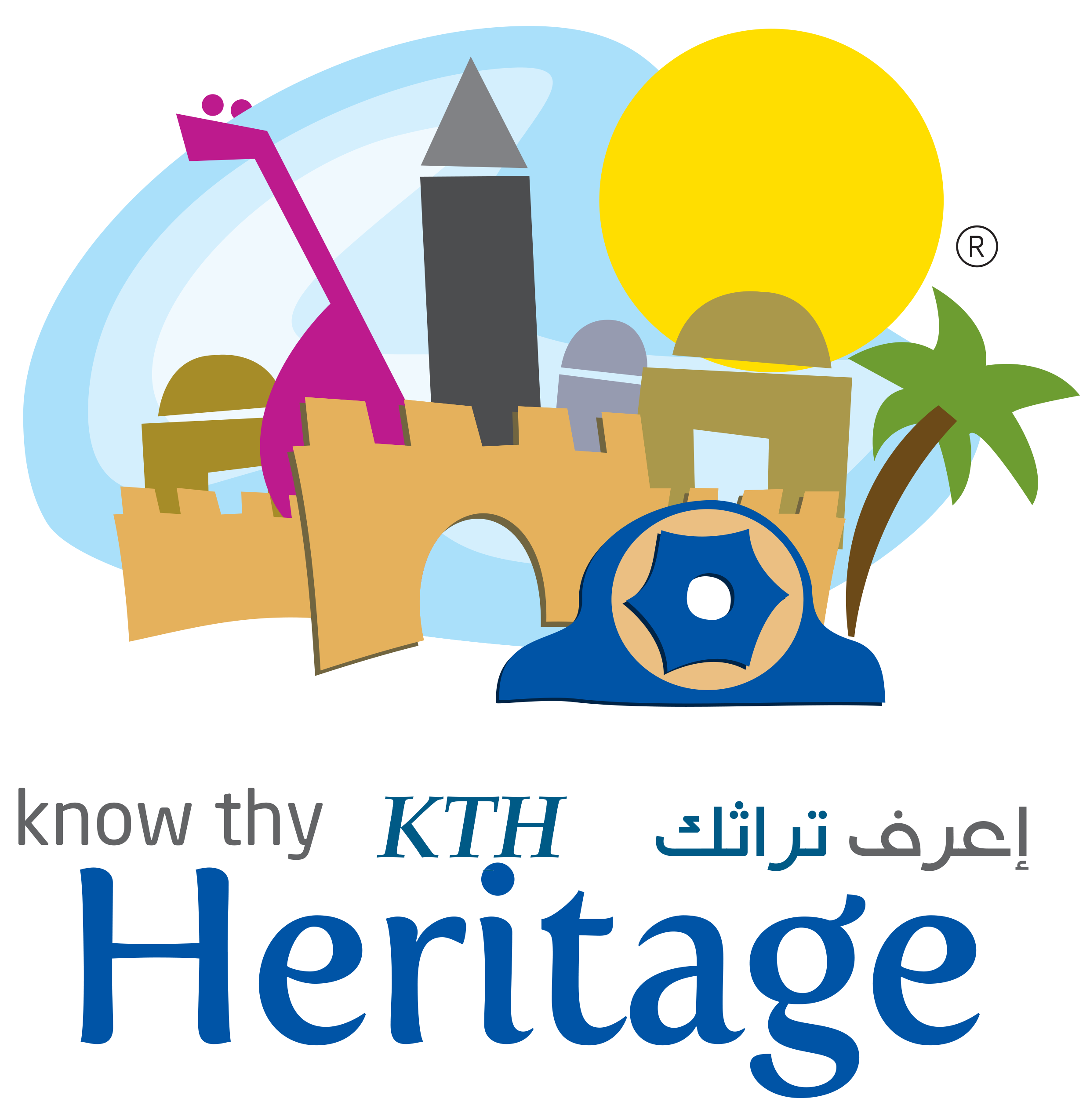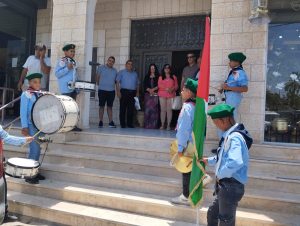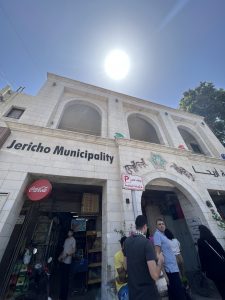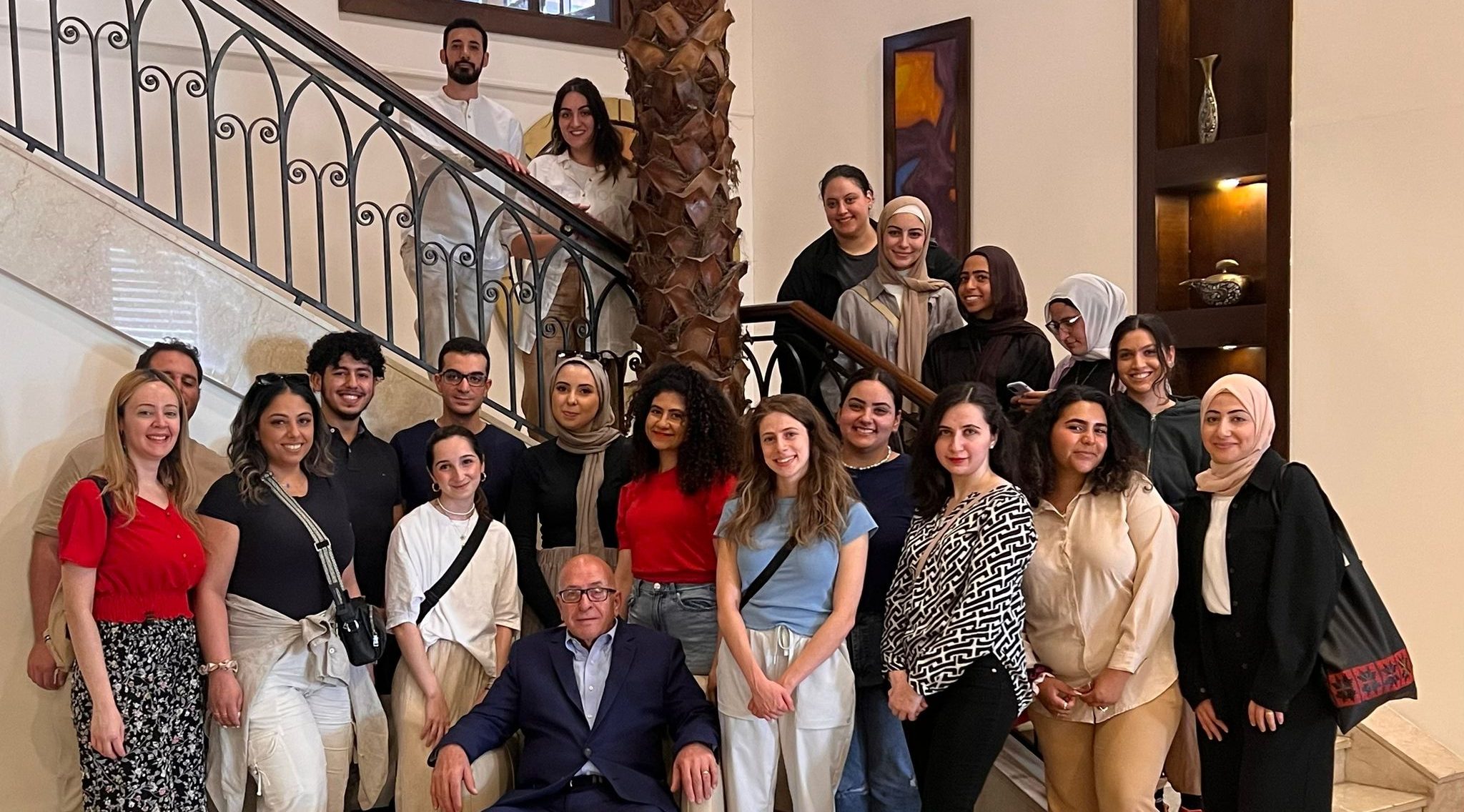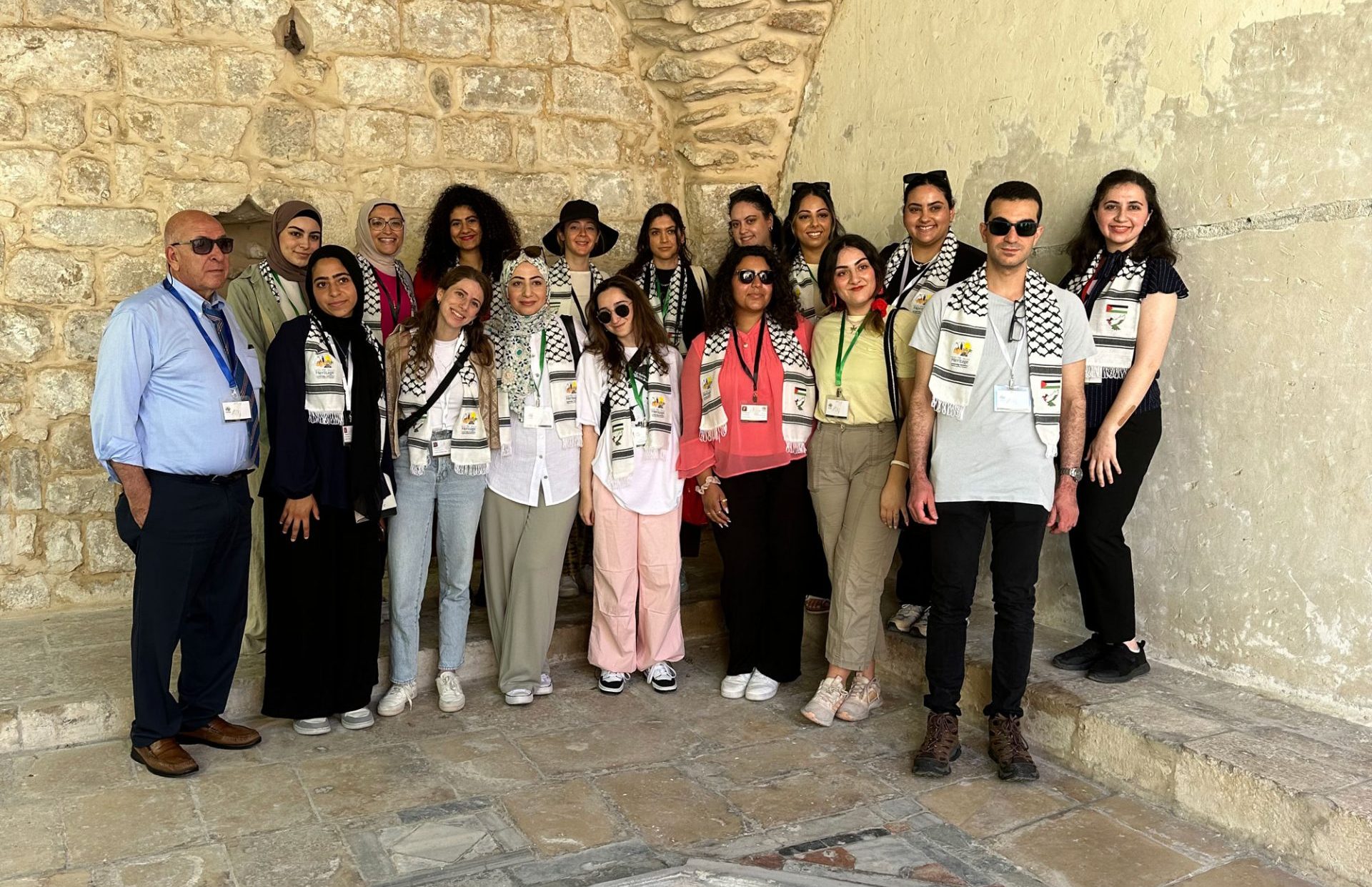KTH 2023 Journey Day 3 Jordan, Crossing the Border & Jericho

Know Thy Heritage Leadership Initiative Day 3: The Journey to Palestine
By Sophia K.
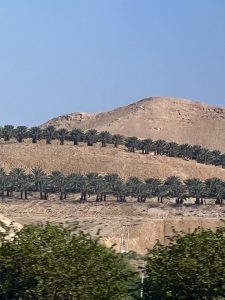
A mix of emotions filled each bus row from Amman to the bridge to Palestine. An overall sense of excitement was present, with spurts of anxiety about facing the immigration officers. For the Americans, we hoped the trial period of not restricting Palestinian Americans from visiting Palestine would work in our favor. Putting faith in this new rule, preparing for the questions we may face at the border and the calmer personalities kept the group’s general energy calm and collected.
We were also put at ease by taking in the sights of the sandy peaks and lush palm trees while we were given a
brief but thorough history of the area between Amman and King Hussein/ Allenby Bridge. We learned about the vast array of crops that can thrive in the land of the Jordan Valley, especially in the northern and most fertile portion known as Ghor. Cucumbers, tomatoes, melons, eggplants, bananas and citrus fruits are all products of this below-sea-level dip in the earth. What truly stuck out to me was the the diversity of agricultural crops and traditions just in this quaint yet 11,000 year-old city. It forshadowed how distinct yet similar all of Palestinian towns are.
Once we reached the border, we met our fate through a simple process that proved to have many layers and still left us with questions. The majority of us endured an almost seamless experience. Through a VIP service, we cut in front of local Palestinians engaging in regular but oh-so-hectic and unfair commutes. In the first line, we swiftly had our luggage checked through X-ray scanners and walked through metal detectors before getting into another line to speak with immigration officers. From there, most of our delegates made it through after responding to questions about where we were going, where we were staying, what languages we spoke, whether we had visited Palestine before and whether we had family in the cities we would be visiting. Most of us kept our composure and made it safely onto the new bus waiting for us on the other side of the passenger terminal. However, some of our friends from outside the U.S. were held back for further questions or to submit personal details. While we excitedly cheered on the individuals held back who made it through, we ultimately were down to waiting on one more person. The interrogation process was dragged out until the office closed for our new friend, who was eventually denied access to Palestine.
We left the terminal unsure of our friend’s future but clutched onto hope. We took on the next stop on our trek with a positive outlook and gratitude as we were handed kuffiyah scarves and warmly welcomed by the drumming of local scouts and handshakes and comforting smiles of area dignitaries at the Palestinian Border Center in Jericho.
|
|
|
As youth of the Palestinian diaspora, this greeting upon arrival made for a true sense of homecoming.
When talking to Jericho representatives at the municipality office, we learned that the city is one of the largest exporters of dates, and some of their dates even go to countries where we have delegates from, like Chile.
While hearing about this significant industry that provides jobs to many people in the area, our eyes were opened up to the realities of the occupation while simultaneously sampling the fresh, caramelly stone fruit that just about melted in our mouths. We found out that since many of the date farms exist on occupied land, worker rights don’t exactly exist. The farmers work in dangerously hot conditions and are prone to falls as they climb high to the top of trees, yet they cannot obtain worker’s insurance.

On a more positive note, we learned that the city has registered to be recognized as a UNESCO World Heritage Site. If approved in October, this would help drive general traffic and tourism to the area and could lead to overall economic improvements.
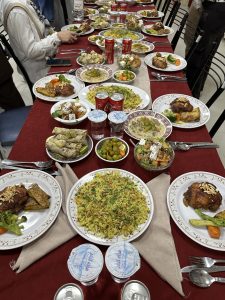
Our next stop was Al-Istiqlal University, Palestinian Academy for the Security Sciences. Students come to this relatively new yet world-renowned university to study and then work in sectors of security, military, police and customs. University leaders shared that they are making strides toward getting their student base to include the same amount of men and women. Upon graduation, students go through a job placement program and have to commit a specific amount of service based on their role or assignment.
University staff explained how this after-graduation commitment to service plays a pivotal role in protecting Palestinian land, culture and heritage.
After the presentation, we were again graced with classic Palestinian hospitality as tables in the food hall were fully laid with musakhan rolls, stuffed chicken, Arabic salad, roasted veggies and rice. Even the smallest and neediest guests—street cats—weren’t turned away from the feast. As the cafeteria doors were left open, staff allowed them to wander around and delegates fed them scraps from their plates.
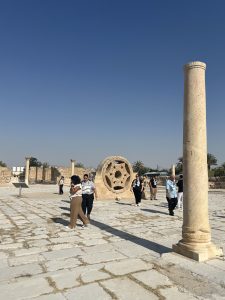
Hisham’s Palace was located in the same vicinity as the university, so we made a quick stop there to see one of the oldest Islamic sites in the West Bank. The ruins outside were incomplete, yet massive and impressive for being built around 724 and 743 AD, the Umayyad period.
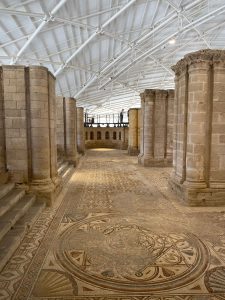
Then, within the inside portion of the archaeological site, we were stunned by the preservation and detail of the intricate tile work. Being able to see one of the original depictions of the duality of life and death or peace and war was truly special. The “Tree of Life” mosaic piece was composed of gazelles on both sides of the tree—eating on one side and being attacked by a lion on the other.
Moving on without our dear friend was bittersweet, but this only amplified our duty as delegates to take on our country’s rich history, learn about the occupation and put our minds together to work toward solutions, both within the country and the ways in which we can change Palestinian

perception abroad. After a jam-packed and emotional day, we returned to the hotel to fuel up, rest and prepare for our first full day in Palestine.
